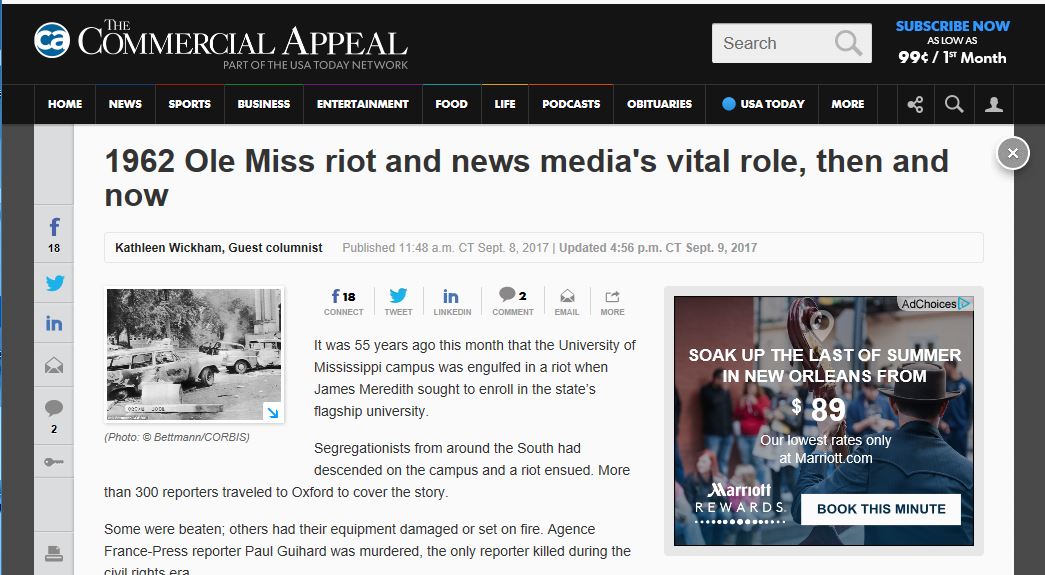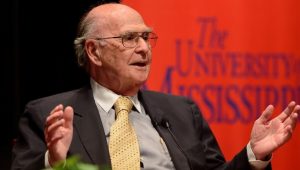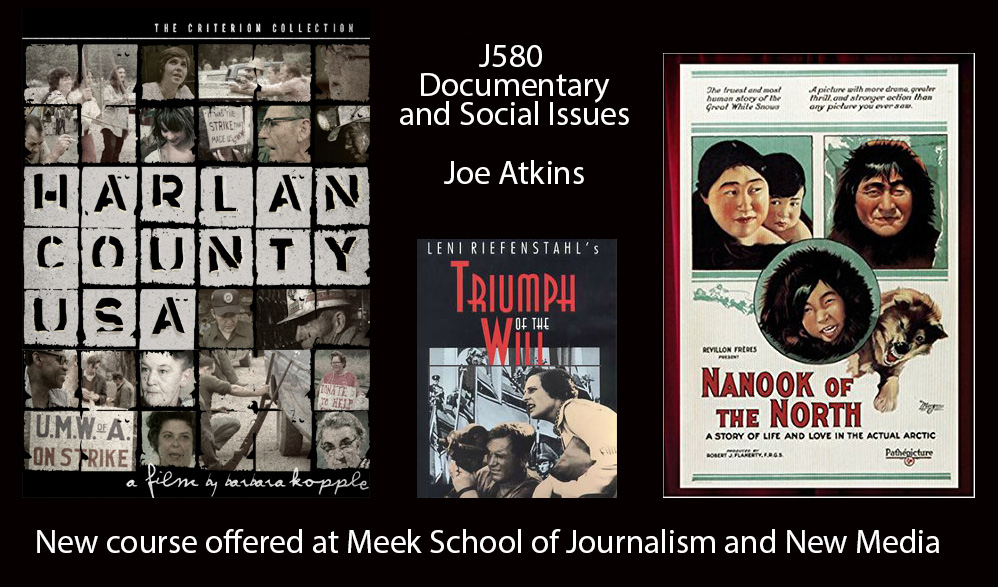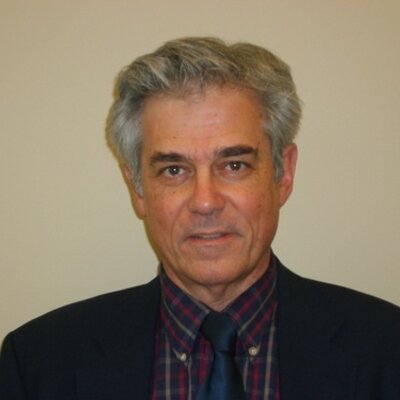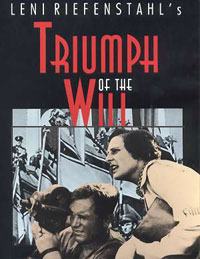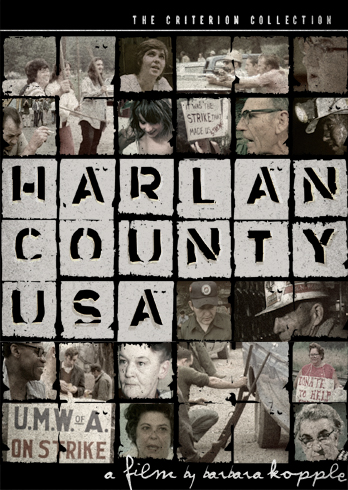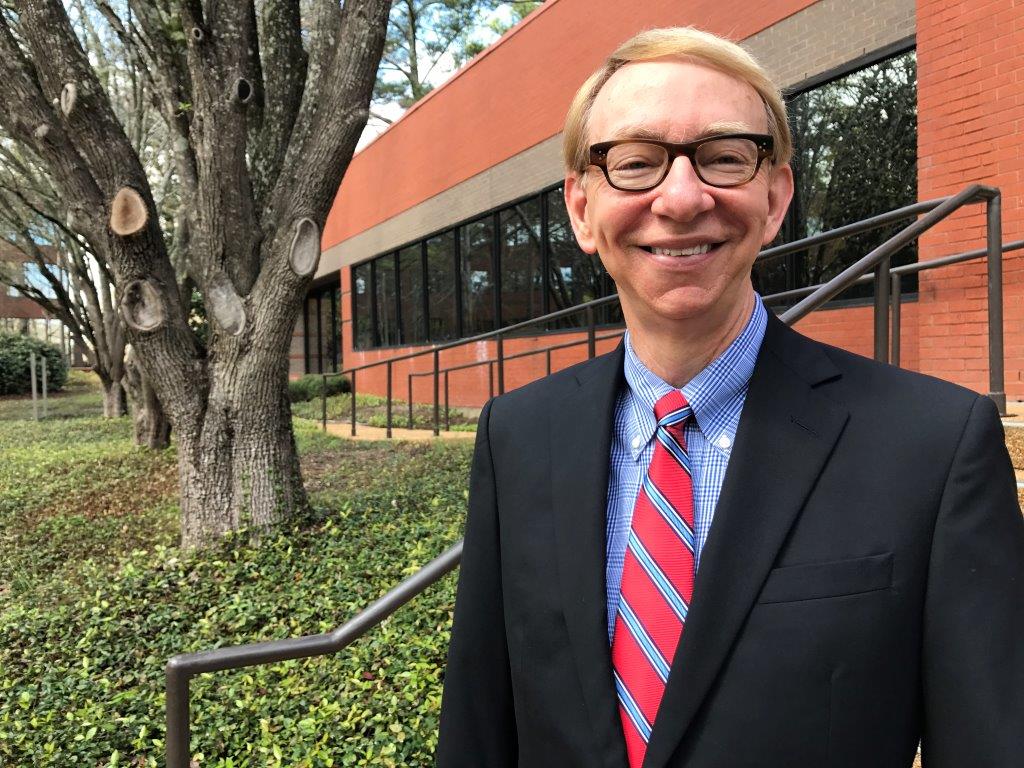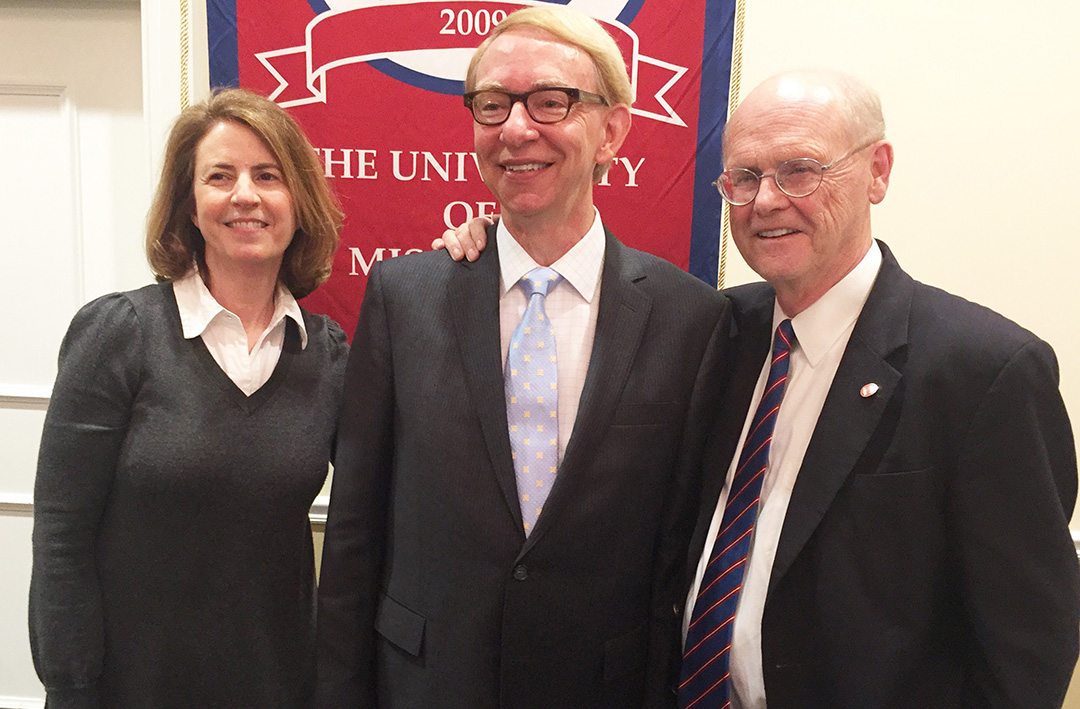
From left, Debora Wenger, Dennis Moore and Will Norton Jr.
In 1975, the Memphis Commercial Appeal asked the University of Mississippi to nominate two students for potential internships. Dennis Moore was one. He traveled to Memphis and survived an odd interview with the managing editor, who asked a variety of strange questions, such as “Name the countries you fly over when traveling from Memphis to Antarctica?”
“Despite the bizarre nature of the interview, he demonstrated an ability to be removed from the chaotic nature of questioning and keep his wits,” said Will Norton Jr., Ph.D., professor and dean of UM’s Meek School of Journalism and New Media. “He has followed a similar pattern throughout his career. His achievements demonstrate that, while the Meek School has more prominence today than it had 40 years ago, its graduates have always had national stature.”
Moore was honored Wednesday night as the 58th recipient of the Samuel S. Talbert Silver Em award at the Inn at Ole Miss on the UM campus. The Silver Em is UM’s highest award for journalism. Recipients must be Mississippi natives or have led exemplary careers in the state.
Moore began his journalism career as an intern at The Germantown (Tennessee) News. He later directed breaking news coverage for USA Today, the nation’s largest circulation newspaper, on stories such as the shooting of Michael Brown in Ferguson, Missouri; the spread of Ebola from Africa to the United States; and the trial of one of the Boston Marathon bombers.
Earlier at USA Today, he was managing editor of the Life section, which put him in contact with Mick Jagger, John Grisham, Steven Spielberg and and many other notable people.
 Moore said his favorite entertainment interview was with Octavia Spencer, who won an Oscar for her role in “The Help,” a book that became a movie written by fellow UM graduate Katherine Stockett set in Jackson, where Moore began his professional reporting career at The Clarion-Ledger.
Moore said his favorite entertainment interview was with Octavia Spencer, who won an Oscar for her role in “The Help,” a book that became a movie written by fellow UM graduate Katherine Stockett set in Jackson, where Moore began his professional reporting career at The Clarion-Ledger.
Moore is now co-editor of Mississippi Today, a news website, with Fred Anklam, also a USA Today and Clarion-Ledger veteran, Ole Miss graduate and Silver Em recipient.
“When I found out I was going to receive the award, I thought I don’t measure up to the previous recipients,” Moore said Wednesday during his acceptance speech. “I don’t think my accomplishments are as stellar as theirs.
“I’ve never endangered myself and my family for editorializing about a social issue. I’ve never revealed government malfeasance. I’ve never helped the community overcome a major natural disaster. I spent most of my career covering entertainment, movies, television, music, and the slightly higher respectability chain, books.”
However, Moore said he believes the staffs he’s worked with over the years have applied the same enthusiasm, vigor and aggressive newsgathering that people on other beats did while covering the entertainment industry.
“We just had more fun,” he said.
Moore said he likes to think he’s helped people understand the importance of critical thinking. “I believe if you look insightfully, if you look aggressively at popular culture, you can find out as much about society as if you write a news story,” he said.
Moore said he’s concerned about the lack of critical thinking in modern journalism. He said journalists must present facts and provide information to defend them because, in a “fake news” era, the public questions the media.
“They don’t have the confidence,” he said. “I believe we can do that by reporting and providing context. By context, I don’t mean let’s interpret for people. Let’s get enough facts so that we can speak confidently, authoritatively and can address issues in a way that can’t be questioned.
“If there’s a problem, we can possibly offer alternatives. We can treat the people we deal with on our beats with respect. Hold them accountable, but don’t present them with our agenda. I think that’s what a lot of news organizations are starting to do now.”
While Moore is concerned about the state of journalism today, he said he’s also encouraged, because he thinks journalists are on a good path.
“We have to report with depth, insight, and then we may be able to affect change,” he said.
Moore credited several people with his success, including Norton, who he described as “inexhaustible” and a “genius.”
“He will very humbly describe himself as making connections, when actually what he does is he creates character and careers,” said Moore. “The Meek School would not be the Meek School without Dr. Norton.”
Norton said he went through issues of The Daily Mississippian from 1973 to 1975 to look at some of Moore’s work as a student journalist. He found several stories, including one titled ‘Dorm Hunting, the night I kicked my leg through the wall, I decided it was time to move.’ Moore wrote light and serious pieces for the college newspaper, including stories about UM applying again for a Phi Beta Kappa chapter and voting issues.
“Whether it was about shoddy campus housing, lack of freedom for faculty members or voting rights, tonight’s honoree always seemed to focus on important news,” said Norton, who gave attendees an update about the Meek School of Journalism and New Media.
“During the 1974-75 academic year, the Department of Journalism had fewer than 100 majors, and an accreditation team made its first site visit to the campus,” he said. “The endowment of the department was less than $50,000.
“Today, the Meek School has more than 1,500 majors in Farley Hall and the Overby Center, and is raising funds for a third building that will be situated in the parking lot between Lamar Hall and the Overby Center, and the accreditation team called the Meek School a destination – and one of the elite programs in the nation.”
Norton said the endowment today is more than $13 million with a major estate committed to the future.
“The Meek School is prominent nationally now, if not globally,” he said. “Clearly, media education at Ole Miss has gained a great deal of exposure. Several times over the last few weeks, the chancellor has called the Meek School one of the two best schools on the campus. That exposure is based on the strong foundation established in 1947 by Gerald Forbes, the founding chair. He was joined by Sam Talbert and Dr. Jere Hoar. They produced outstanding graduates.”
Hoar was one of the event attendees Wednesday night, and he was recognized for his contribution to the school.
The Silver Em award is named for Talbert, the professor and department chairman, who believed a great department of journalism could be an asset to the state of Mississippi. An “em” was used in printing. In the days of printing with raised metal letters, lines of type were “justified” by skilled insertion of spacing with blanks of three widths – thin, en and em. The Silver Em blends the printing unit of measure with the “M” for Mississippi.
“The award has been presented annually since 1948 as the university’s highest honor for journalism,” said Debora Wenger, associate professor of journalism. “The requirements are that the person selected be a graduate of the University of Mississippi, who has had a noteworthy impact in or out of the state, or if not a graduate of Ole Miss, a journalist of note who has been a difference-maker in Mississippi.”
Meek journalism students were also honored during the event, which featured the Best of Meek awards ceremony.
Students who received Taylor Medals include Rachel Anderson, Katelin Davis, Hannah Hurdle and Ariyl Onstott.
The Kappa Tau Alpha Graduate Scholar was Stefanie Linn Goodwiller.
The KTA Undergraduate Scholar was Ariyl Onstott.
Graduate Excellence winners were Mrudvi Parind Vakshi and Jane Cathryn Walton.
The Lambda Sigma winner was Susan Clara Turnage.
Excellence in Integrated Marketing Communications winners were Austin McKay Dean and Sharnique G’Shay Smith.
Excellence in Journalism winners were Maison Elizabeth Heil and John Cooper Lawton.
Who’s Who winners were Rachel Anderson, Ferderica Cobb, Austin Dean, Elizabeth Ervin, Leah Gibson, Madison Heil, Cady Herring, Rachel Holman, Amanda Hunt, Hannah Hurdle, Amanda Jones, John Lawton, Taylor Lewis, Ariyl Onstott, Meredith Parker, Susan Clara Turnage, Sudu Upadhyay and Brittanee Wallace.
The Overby Award was given to Susan Clara Turnage.
Kappa Tau Alpha inductees include Brandi Embrey, Elizabeth Estes, Madison Heil, Rachael Holman, Hannah Hurdle, Tousley Leake, Taylor Lewis, Jessica Love, Hailey McKee, Olivia Morgan, Ariyl Onstott, Alexandria Paton, Natalie Seales and Zachary Shaw.
Dean’s Award winners include Madeleine Dear, Lana Ferguson, Kylie Fichter, Jennifer Froning, Dylan Lewis, Emily Lindstrom, Sarah McCullen, Dixie McPherson, Anna Miller, Rashad Newsom, Hannah Pickett, Kalah Walker, Brittanee Wallace, Kara Weller and Anna Wierman.
The Meek School of Journalism and New Media was founded in 2009 with a $5.9 million gift from Dr. Ed and Becky Meek, Ole Miss graduates with a long history of support. It is housed in Farley Hall, with a wing for the Overby Center for Southern Journalism and Politics. Today, the Meek School has 1,570 students in undergraduate and graduate studies working toward degrees in journalism and IMC.
For more information, email meekschool@olemiss.edu.
- Story by LaReeca Rucker, adjunct journalism instructor

